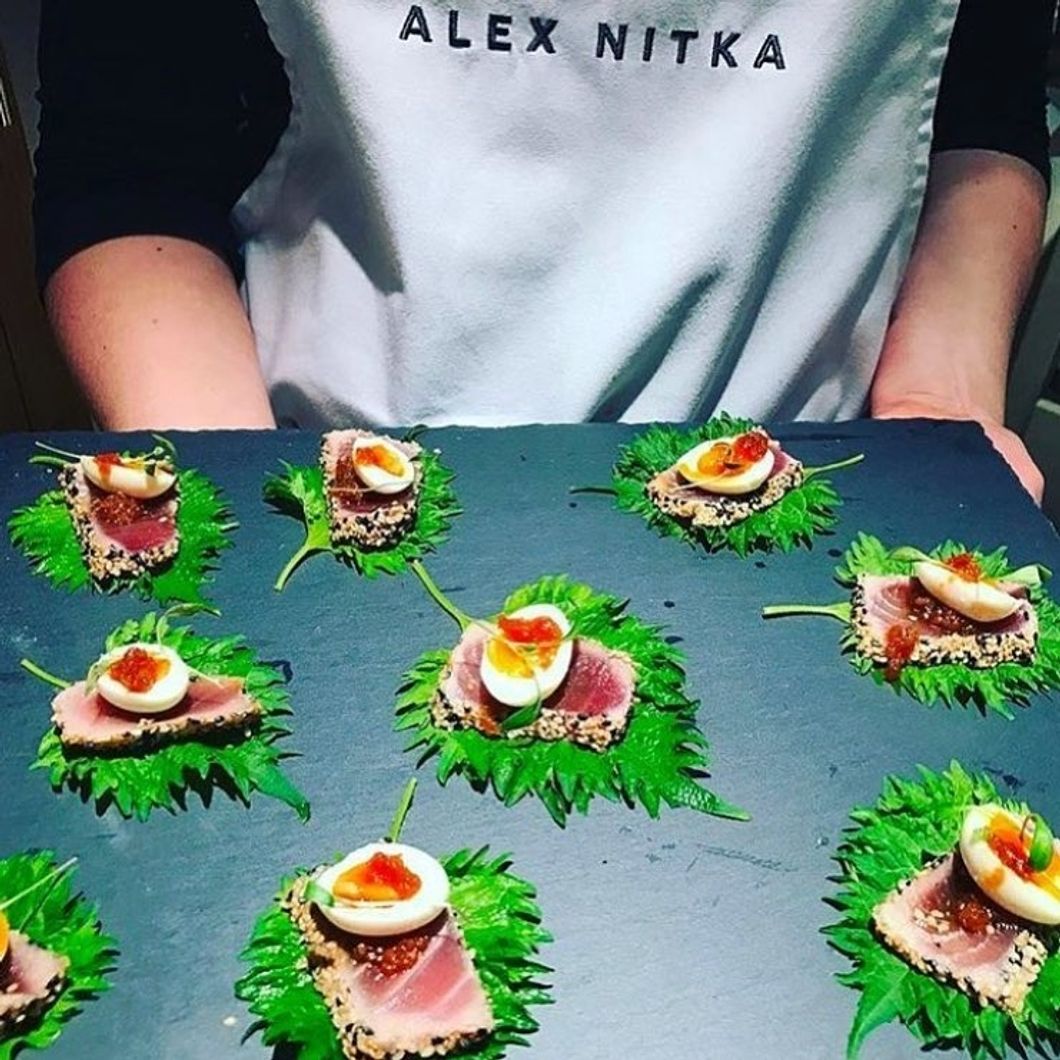Every generation slightly removed from ours turns their nose up at the wordsgluten-free. A diet fad of the past, many see "going gluten-free" as a way to seem like just another hipster Millennial who likes their coffee orders complicated and dismantling the diamond industry. Heck, even I viewed people who had to eat gluten-free that way up until this June when I was diagnosed with a gluten intolerance but may be as serious as Celiac disease.
Giving up wheat, rye, and barley-based products was strangely one of the hardest things I've ever had to endure. My love affair with bread was lengthy and sitcom-worthy, and I practically survived my hellacious junior year of high school on Twinkies and Ho-Hos. The transition to cut gluten out of my diet uprooted my life completely, and on the night of my diagnosis, I sat in an IHOP with my boyfriend and cried to "The Climb" by Miley Cyrus over the radio into my shortstack of chocolate chip pancakes because never eating some of my favorite foods seemed like a hill I couldn't surmount. However, my physical health improved massively upon making the shift, as I went from vomiting after every meal to losing a few pounds and feeling overall healthier and rejuvenated.
But the most difficult part of my health journey has been the stigma associated with the two dirty little words of "gluten-free". Many restaurants will not cater towards those of us with gluten intolerances, Celiac disease, or other dietary restraints that prevent people from consuming gluten. I've literally been laughed at by servers and fast-food workers alike when asked if they could prepare my food in a different area, while other customers look at me like I've landed from some alien planet. Additionally, restaurants that do cater towards people with dietary restrictions often make their gluten-free menus confusing, more expensive, or practically inaccessible ("our location doesn't offer that option!" WELL SORRY GOOGLE TOLD ME OTHERWISE). My own friends still make relentless fun of me when I ask for a gluten free menu at restaurants but quit laughing the second they have to deal with the consequences of me eating it.
Dropping the stigma associated with "gluten-free", like that I think it'll somehow give me magical powers or that I'm doing it just to look cool, creates a more inclusive society. Celiac disease – which is a long-term autoimmune disorder that, when gluten is consumed, saws down the villi of your small intestine and creates damaging digestive issues that takes a lifetime to repair if caught – and other gluten-related disorders are being diagnosed in record numbers.
It is the burden of the food industry to better educate its companies and their employees about the dangerous outcomes these dietary restrictions create. I've done what I can to be the most aware of my diet, which includes becoming much more well-versed in nutrition labels and ingredients lists, but I hope that one day I'll be able to get a gluten-free menu without a sideways glare from my server.
There are chains that pioneer the change. Red Robin, for example, has a location in my hometown and has quickly become a staple for when my family or friends want to go out. Its workers are always super cognizant towards my allergy the second I ask for a gluten-free menu, which has virtually all of its options listed with ways to modify the order to make them gluten-free. The hosts, wait staff, and other workers are informed of what has gluten and what doesn't, so I don't slip up in ordering something that'll make me sick. All gluten-free orders have a dedicated fryer, are prepared in a separated area so as to avoid cross-contamination and are served with a smile. We always leave them a huge tip for being so accommodating. When a restaurant whose staple dish is a good, gluten-stuffed hamburger can make changes to help those who eat gluten-free out, it shows promise that the rest of the industry can follow.
All in all, eating gluten-free has had numerous health benefits for me and for many other people. It's easier for me to get out of bed in the morning and function as a normal human being, instead of worrying about when I'll have to run to the bathroom to throw up after I eat. Although eating gluten-free has taken some adjusting, I've found that it's possible to do so without breaking the bank or making everyone around me miserable. Nevertheless, I wish I could more easily convey how serious my gluten intolerance is to those around me, especially the limited choice in restaurants my hometown has.
- I Have Celiac Disease And I'm Getting A Gluten Detection Service Dog ›
- To The Barista Who Thinks I'm 'Pretentious And White' For Having ... ›
- The Reality Of Life With Allergies ›
- 9 Things To NOT Say To Someone With Celiac Disease ›
- 10 Struggles Anyone Gluten-Free Will Understand ›
- May Is Celiac Disease Awareness Month, Here Are Some Things ... ›






 The minimum wage is not a living wage.
StableDiffusion
The minimum wage is not a living wage.
StableDiffusion
 influential nations
StableDiffusion
influential nations
StableDiffusion












